Related Research Articles
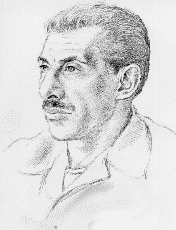
Idries Shah, also known as Idris Shah, Indries Shah, né Sayed Idries el-Hashimi and by the pen name Arkon Daraul, was an Afghan author, thinker and teacher in the Sufi tradition. Shah wrote over three dozen books on topics ranging from psychology and spirituality to travelogues and culture studies.
Omar Ali-Shah was a prominent exponent of modern Naqshbandi Sufism. He wrote a number of books on the subject, and was head of a large number of Sufi groups, particularly in Latin America, Europe and Canada.

Sufi studies is a particular branch of comparative studies that uses the technical lexicon of the Islamic mystics, the Sufis, to exemplify the nature of its ideas; hence the frequent reference to Sufi Orders. It may be divided into two main branches, the orientalist/academic and the spiritual.
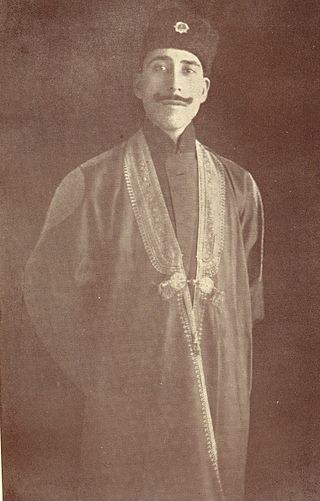
Sirdar Ikbal Ali Shah was an Indian-Afghan author and diplomat descended from the Sadaat of Paghman. Born and educated in India, he came to Britain as a young man to continue his education in Edinburgh, where he married a young Scotswoman.
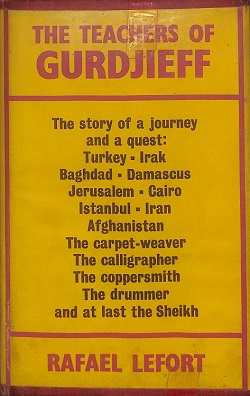
The Teachers of Gurdjieff is a book by Rafael Lefort that describes a journey to the Middle East and central Asia in search of the sources of G. I. Gurdjieff's teaching, and culminates in the author's own spiritual awakening, by meeting and "opening" to the teachings of the Naqshbandi Sufis. The author's search finally leads him to the Sarmoun monastery in Northern Afghanistan where Gurdjieff had been previously taught.

Khwājagān is a Persian title for "the Masters". Khwajagan, as the plural for "Khwāja", is often used to refer to a network of Sufis in Central Asia from the 10th to the 16th century who are often incorporated into later Naqshbandi hierarchies, as well as other Sufi groups, such as the Yasaviyya. In Firdowsi's Shahnama the word is used many times for some rulers and heroes of ancient Iran as well. The special zikr of the Khwajagan is called 'Khatm Khajagan'.

Saira Elizabeth Luiza Shah was a Scottish writer who wrote under the pen name Morag Murray Abdullah. She met the Pashtun author, poet, diplomat, scholar, and savant Sirdar Ikbal Ali Shah and wrote a fictional account of her marriage and travels in the North-West Frontier Province of British India and the mountains of Afghanistan.
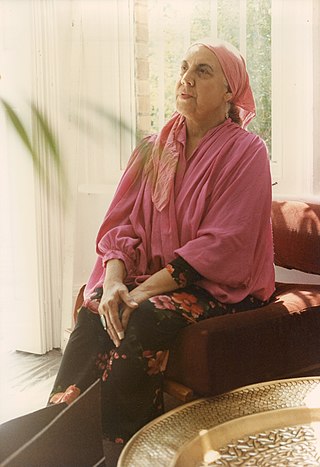
Amina Maxwell-Hudson was a British anthologiser of Sufi stories and folk tales, and was for many years the Chairperson of the College of Storytellers. She was the sister of the Sufi writers Idries Shah and Omar Ali-Shah, and the daughter of Sirdar Ikbal Ali Shah and Saira Elizabeth Luiza Shah, a Scottish woman. Her nephew is the travel writer and documentary filmmaker Tahir Shah; her nieces are Safia Shah and the writer and documentary filmmaker Saira Shah.
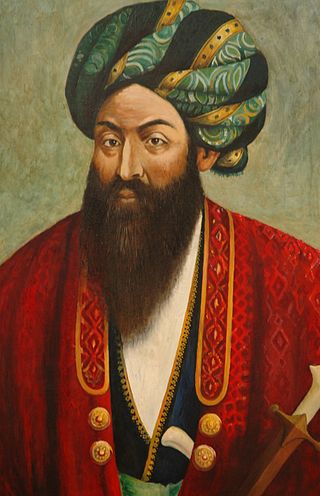
Saiyed Muhammed Khan, better known by his title as Jan-Fishan Khan, was a 19th-century Afghan noble chieftain (nawab) He participated in the First Anglo-Afghan War (1839–42) and the Indian Rebellion of 1857, and on both occasions, he supported the British. For his services to the British, Khan was granted the estate of Sardhana and is the forefather of the Nawabs of Sardhana.
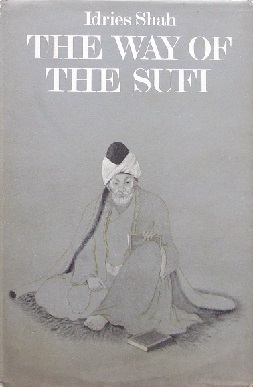
The Way of the Sufi was the best-selling follow-up introduction to Sufism by the writer Idries Shah after the publication of his first book on the subject, The Sufis. Whereas The Sufis eschewed academic norms such as footnotes and an index, The Way of the Sufi provided a full section of notes and a bibliography at the end of its first chapter, entitled "The Study of Sufism in the West".
Octagon Press was a cross-cultural publishing house based in London, UK. It was founded in 1960 by Sufi teacher, Idries Shah to establish the historical and cultural context for his ideas. The company ceased trading in 2014.

The Eleven Naqshbandi principles or the "rules or secrets of the Naqshbandi", known in Persian as the kalimat-i qudsiya, are a system of principles and guidelines used as spiritual exercises, or to encourage certain preferred states of being, in the Naqshbandi Sufi order of Islamic mysticism.

Khwaja Haji Dost Muhammad Qandhari was an Afghan Sufi master in the Naqshbandi tradition in the 19th century (1801–1868).
Eugenio Zanetti is an Argentine dramatist, painter, film set designer, and theater and opera director. He won an Academy Award for Best Art Direction in 1995, for the film Restoration.
Robinson Savary is a French film director, screenwriter, and photographer. He is best known for his acclaimed debut full length film Bye Bye Blackbird and his photography series, "Los Raros". He is currently living in France.
The Idries Shah Foundation (ISF) is an independent educational and cultural charity, set up by the family of the late thinker, writer, and teacher in the Sufi mystical tradition, Idries Shah, who wrote over three dozen books on topics ranging from psychology and spirituality to travelogues and culture studies.

Laṭāʾif are special organs of perception in Sufi spiritual psychology, subtle human capacities for experience or action. Depending on context, the laṭāʾif (plural) are also understood to be the qualities of consciousness corresponding to those experiences or actions.

Ghawth SayyidMir Jan Shah Saheb ibn Hasan Naqshbandi Ishaani was a Sufi saint from Kabul and a 19th century leader of the Naqshbandi Ishaani Sub-Tariqa.

Sufism in Bangladesh is more or less similar to that in the whole Indian subcontinent. India, it is claimed, is one of the five great centers of Sufism, the other four being Persia, Baghdad, Syria, and North Africa. Sufi saints flourished in Hindustan (India) preaching the mystic teachings of Sufism that easily reached the common people, especially the spiritual truth seekers in India. Sufism in Bangladesh is also called pirism, after the pirs or teachers in the Sufi tradition.
References
- ↑ Arif Ali-Shah's brief biography in French (shockwave flash file) [ permanent dead link ] Retrieved on 2008-11-14.
- ↑ Writing credits for Bye Bye Blackbird Retrieved on 2008-11-14.
- ↑ Details of Bye Bye Blackbird at Austrian Film Commission Archived May 31, 2011, at the Wayback Machine Retrieved on 2008-11-14.
- ↑ Awards for Bye Bye Blackbird Retrieved on 2008-11-14.
- ↑ Robinson Savary's award for À suivre Retrieved on 2008-11-14.
- ↑ Writing credits for Papelucho y el marciano Retrieved on 2008-11-14.
- ↑ Film-makers Arif Ali-Shah has worked with Archived 2011-05-22 at the Wayback Machine Retrieved on 2008-11-14.
- 1 2 Obituary of Idries Shah, The Independent (London) of November 26, 1996.
- ↑ Professor Emeritus Leonard Lewin 'established and, for many years, led study groups under the guidance of Idries Shah, Omar Ali-Shah and Arif Ali-Shah', according to his University of Colorado obituary here Archived 2010-06-04 at the Wayback Machine Retrieved on 2008-11-14.
